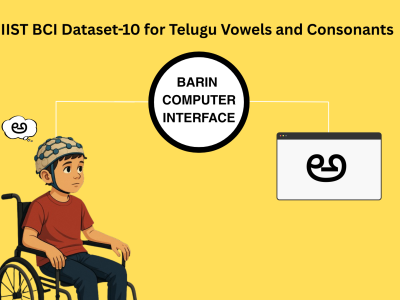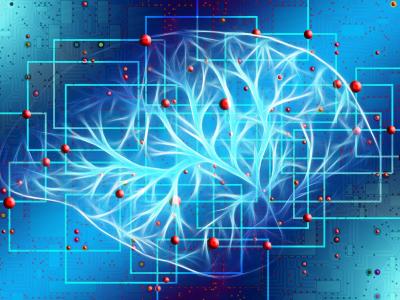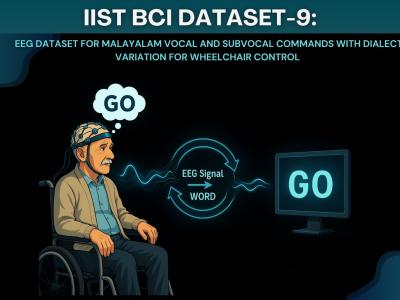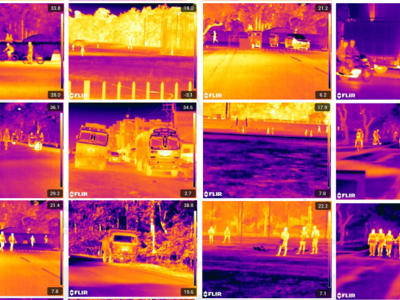
The dataset trained the CNN for Zen-Ship, an automated audio censoring application. The dataset contains spectral data for either explicit or non-explicit words.
- Categories:

The dataset trained the CNN for Zen-Ship, an automated audio censoring application. The dataset contains spectral data for either explicit or non-explicit words.

Brain-Computer Interface (BCI) technology makes possible a direct interface between the brain and external devices through the interpretation of neural signals. It is essential to have patient's native language-containing datasets when designing BCI-based solutions for neurological disorders. Current BCI research, though, lacks language-specific datasets, notably for languages like Telugu, which has over 90 million speakers in India. We developed an Electroencephalograph (EEG)-based Brain-Computer Interface (BCI) dataset consisting of EEG signal samples for Telugu Vowels and Consonants.
The main goal of this research is to propose a realistic benchmark dataset to enable the development and evaluation of Internet of Medical Things (IoMT) security solutions. To accomplish this, 18 attacks were executed against an IoMT testbed composed of 40 IoMT devices (25 real devices and 15 simulated devices), considering the plurality of protocols used in healthcare (e.g., Wi-Fi, MQTT and Bluetooth).

With the advent of 6G Open-RAN architecture, multiple operational services can be simultaneously executed in RAN, leveraging the near-Real-Time Radio Intelligent Controller (near-RT-RIC) and real-time (RT) nodes. The architecture provides an ideal platform for Federated Learning (FL): The xAPP is hosted in the near-RT-RIC to perform global aggregation, whereas the Open Radio Unit (ORU) allocates power to users to participate in FL in a RT manner. This paper identifies power and latency optimization as critical factors for enhancing FL in a stochastic environment.

This dataset encompasses data from the MIMIC - Ⅳ, MIMIC - Ⅲ subsets, and the eICU, focusing on patients with acute pancreatitis. It includes a comprehensive range of clinical information, such as patient demographics, and laboratory test results.

Social Network Datasets (SNDs) are structured data collected from social media platforms, online communities, or communication networks for the study of user behavior, information dissemination, community discovery, and so on. This kind of data usually contains nodes (users/entities) and edges (relationships/interactions), and is widely used in the fields of social network analysis (SNA), recommender systems, and public opinion monitoring.

Securing smart grids relies in part on the reliable integration of blockchain technologies for the automation of energy transactions. However, the presence of vulnerabilities in smart contracts poses a direct threat to the integrity and resilience of these critical systems. This work presents a unique and structured dataset of real-world vulnerabilities observed in smart contracts, intended for cybersecurity research applied to smart energy infrastructures.

We developed IIST BCI Dataset-9, a novel EEG-based Brain-Computer Interface (BCI)
dataset to improve wheelchair control systems using Malayalam dialect variations. BCI
systems help people with motor disabilities by allowing them to control devices using brain
signals. The limited number of BCI datasets in Indian languages makes it harder for native
speakers to use these systems. To address this, we created a dataset with 15 Malayalam
words related to basic wheelchair commands like Forward, Backward, Go, Stop, Reverse,

Accurate and consistent monitoring of lake water levels is essential for understanding hydrological dynamics and climate-driven variability in remote and data-scarce regions. Satellite altimetry provides high-precision lake level observations, but its limited spatial and temporal coverage constrain large-scale monitoring. Combining Digital Elevation Model (DEM) and remote sensing imagery offers an alternative, but the accuracy of resultant water level is affected by the uncertainties of inherent elevation and image processing.

ITDAV-25 (Indian Thermal Dataset for Autonomous Vehicles), a thermal image dataset specifically curated to advance research in Advanced Driver Assistance Systems (ADAS), particularly for environments characterized by low visibility, night-time conditions, and inclement weather. The dataset comprises of 13,688 raw thermal images, collected without any synthetic augmentation techniques.